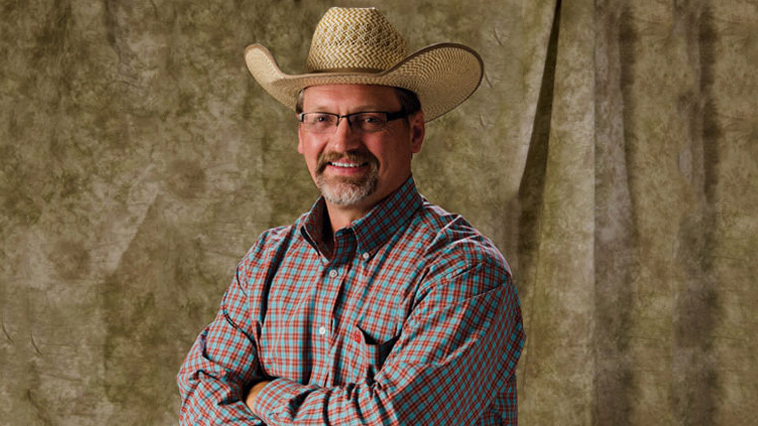


By Billy Smith
The soul of a good county fair is in the sauntering—the ritual maze of bodies floating along the serpentine of livestock pens. It’s the circulatory system of thousands of similar county gatherings around the United States each year. In the 1960s and ’70s in Hockley County, Texas, a sea of Levi 501s made the saunter back when it was cool to tuck them in your stove-pipe boots and before hipsters messed everything up by sporting Caterpillar gimme-caps with their skinny jeans. Even more common was a healthy sampling of Big Smith bib overalls dotting the throngs there to pass judgement over the livestock.
The ritual saunter made it easier to bump into those town folks who would normally look out of place in such a setting, but who would be missed if they didn’t show up. It let everyone see the banker wearing something other than a starched white shirt, tie and cufflinks. At the fair, he looked almost human, or at least more like the rest of us. It was shocking to prepubescent me. I assumed that the bank president woke up each morning in a suit, tie and white starched shirt; the idea that overall buckle-loops shared the same closet was incomprehensible to me.
In the Big Brown, where I grew up, the Hockley County Stock Show was the great socioeconomic equalizer. Everyone looked rural, at least those seven days every year, and we all learned to saunter at an early age. It’s the only way to properly compare the Dutch with the English Lop rabbits, the Durocs with the Berkshire pigs, the Rambouillet with the Suffolk sheep. But at the Hockley County Stock Show, nobody sauntered better than Larry Don.
I was a teenager before I accepted that Larry Don wasn’t like the rest of us. I hardly know what’s normal anymore, though I’m sure most people didn’t think of Larry Don as such—but I did. I thought Larry was supernormal: better, kinder, more thoughtful than the rest of us. Generally, Larry Don was a sauntering aspirational figure. He was what we wished we could be: transparent, open, unashamed and gloriously extraverted. He always had something kind to say to just about everyone. His broad smile, crooked teeth, oversized nose and short-cropped hair were distinctive.
“You’re the best I’ve ever seen showing pigs,” he’d bark, exposing a mouthful of crooked teeth. He wasn’t much to look at, but neither was I, a scrawny, socially inept, undersized kid who followed praise like a little brown dog. Never mind that Larry Don told every kid that each was the best he’d ever seen. He said it to me from time to time; on occasion, I believed him.
Larry Don spent most of his time dutifully following his father around the stock show, a tall, square-shouldered man whose eye for high-quality steers was unmatched. He passed the specter of his eye for livestock to Larry Don or at least to the degree that his youngest son could grasp the nuances of fitting steers for the show pen. His interpretation of nuance was to stroke just about every animal, commenting on conformation, disposition and overall appearance as if an expert. Most folks knew he wasn’t much of an expert, but they were OK with his assessment anyway. He never had a bad word to say about anyone’s livestock, so his appraisal was always welcome.
Sometime during all of those annual stock shows, I learned the word “retardation” and connected the dots to Larry Don. It seemed a prosaic term, completely ill-fitting to describe the stamp that Larry Don had placed on my livestock experience in the Big Brown. I decided to stick with the term “supernormal” when I sauntered through the serpentine of my own memory after receiving word that Larry Don had passed a few years ago. Sure enough, Larry Don wasn’t normal, but I still elect to see him sauntering through the dusty corrugated barns during the county fair, inspecting every animal and declaring to every hopeful kid that he or she was the “best” he’d ever seen.
SHARE THIS